简体中文
繁體中文
English
Pусский
日本語
ภาษาไทย
Tiếng Việt
Bahasa Indonesia
Español
हिन्दी
Filippiiniläinen
Français
Deutsch
Português
Türkçe
한국어
العربية
Morgan Stanley agrees to settle SEC charges by paying more than $249M.
Abstract:The Securities and Exchange Commission (SEC) recently brought charges against Morgan Stanley & Co. LLC, a leading investment banking institution, and its former head of the equity syndicate desk, Pawan Passi.
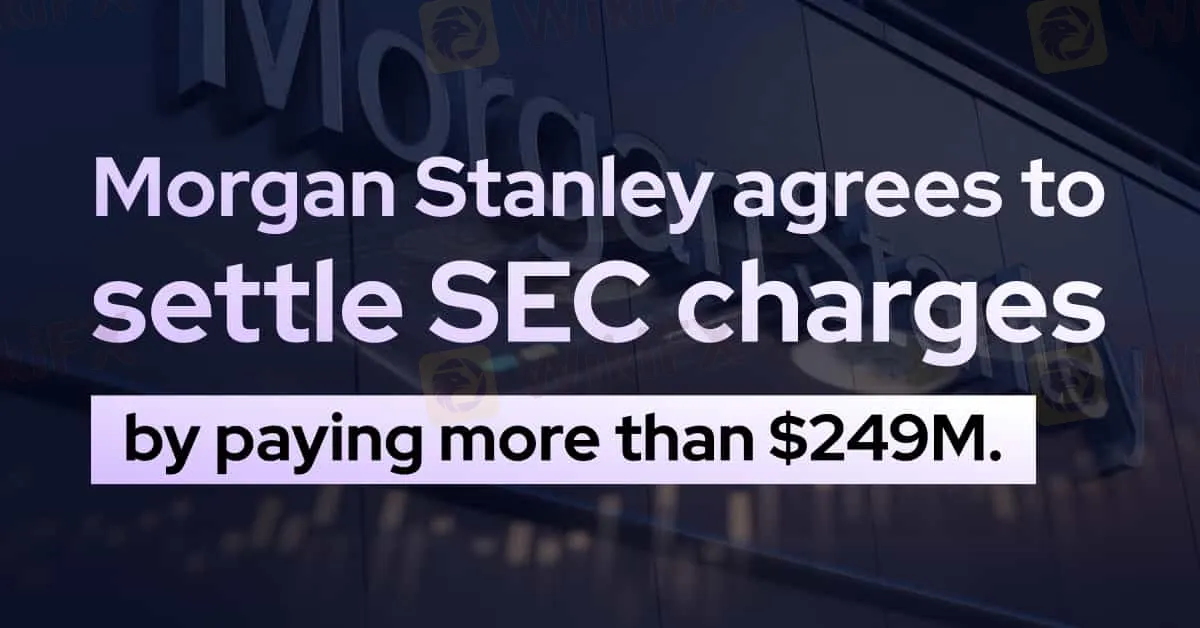
The Securities and Exchange Commission (SEC) recently brought charges against Morgan Stanley & Co. LLC, a leading investment banking institution, and its former head of the equity syndicate desk, Pawan Passi.
These charges are linked to a prolonged fraud scheme involving the improper disclosure of confidential information related to significant stock transactions known as “block trades.” Additionally, the SEC has accused Morgan Stanley of failing to adhere to policies designed to prevent the misuse of material non-public information related to block trades, which typically involve the private arrangement and execution of substantial quantities of a company's shares outside of public markets.
The SEC alleges that Morgan Stanley and Passi shared information about impending block trades with certain buy-side investors, anticipating that these investors would use the information strategically. Specifically, these investors were expected to take substantial short positions in the stock associated with the upcoming block trade. If Morgan Stanley proceeded with the block trade, these investors would then request and receive allocations from Morgan Stanley to cover their short positions, effectively mitigating the bank's risk.
The SEC's investigation, covering the period from June 2018 to August 2021, revealed that Passi and a subordinate on Morgan Stanley's equity syndicate desk disclosed non-public information about imminent block trades to specific buy-side investors. This occurred despite explicit confidentiality requests from the sellers and Morgan Stanley's internal policies governing the handling of confidential data.
Furthermore, the SEC's order highlights Morgan Stanley's failure to implement effective information barriers, preventing the transmission of material non-public information from the equity syndicate desk (located on the private side of the firm) to a trading division on the public side. This lapse hindered the firm's ability to scrutinize whether trades by the public side, conducted while discussions were ongoing with selling shareholders about potential block trades, were based on confidential information.
The SEC's order against Morgan Stanley asserts that the firm knowingly violated Sections 10(b) and 15(g) of the Securities Exchange Act of 1934, along with Rule 10b-5(b) thereunder. As a result, the SEC censured the firm and imposed financial penalties, requiring payment of approximately $138 million in disgorgement, about $28 million in prejudgment interest, and an $83 million civil penalty. In the case of Passi, the SEC's order states that he willfully violated Section 10(b) of the Exchange Act and Rule 10b-5 thereunder, leading to a $250,000 civil penalty, along with associational, penny stock, and supervisory bars.
Concurrently, the U.S. Attorneys Office for the Southern District of New York has reached criminal resolutions with Morgan Stanley and Passi. Notably, the SEC's disgorgement and prejudgment interest requirements for Morgan Stanley will be deemed partially satisfied by the firm's forfeiture and restitution of $136,531,223 as part of its criminal resolution.

Disclaimer:
The views in this article only represent the author's personal views, and do not constitute investment advice on this platform. This platform does not guarantee the accuracy, completeness and timeliness of the information in the article, and will not be liable for any loss caused by the use of or reliance on the information in the article.
Read more
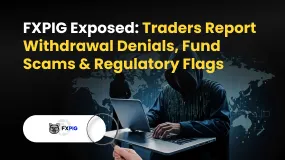
FXPIG Exposed: Traders Report Withdrawal Denials, Fund Scams & Regulatory Flags
Do you face massive losses due to astonishing spreads at FXPIG? Have you witnessed multiple trade executions by the Georgia-based forex broker even though you wanted to execute a single order? Has this piled on losses for you? Is the FXPIG withdrawal too slow? Maybe your trading issues resonate with some of your fellow traders. In this FXPIG review article, we have shared these issues so that you can introspect them thoroughly before deciding on the best forex trader.
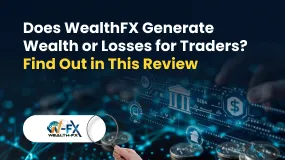
Does WealthFX Generate Wealth or Losses for Traders? Find Out in This Review
The name WealthFX sounds appealing for all those wishing for a rewarding forex journey. However, behind the aspiring name are multiple complaints against the Comoros-based forex broker. These trading complaints dampen the broker’s reputation in the forex community. In this WealthFX review article, we have shared some of these complaints here. Take a look!
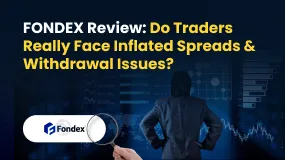
FONDEX Review: Do Traders Really Face Inflated Spreads & Withdrawal Issues?
Does FONDEX charge you spreads more than advertised to cause you trading losses? Does this situation exist even when opening a forex position? Do you witness customer support issues regarding deposits and withdrawals at FONDEX broker? Does the customer support official fail to explain to you the reason behind your fund loss? In this article, we have shared FONDEX trading complaints. Read on!
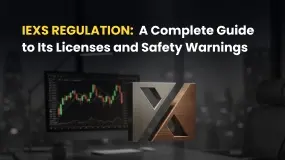
IEXS Regulation: A Complete Guide to Its Licenses and Safety Warnings
When choosing a broker, every trader's biggest concern is safety and trust: is it regulated? For IEXS, the answer isn't simply YES or NO. While the company says it's regulated by trusted authorities, looking closer shows a complicated and worrying situation with mixed evidence and serious risks. What they claim on the surface doesn't match up with official warnings, license problems, and many bad user experiences. This article gives you a detailed, fact-based look into IEXS regulations, breaking down their official licenses, what their trading platform is really like, and real stories from traders who have used it. Our goal is to give you the facts so you can make a smart decision about keeping your money safe.
WikiFX Broker
Latest News
150 Years Of Data Destroy Democrat Dogma On Tariffs: Fed Study Finds They Lower, Not Raise, Inflation
The Debt-Reduction Playbook: Can Today's Governments Learn From The Past?
FIBO Group Ltd Review 2025: Find out whether FIBO Group Is Legit or Scam?
Is INGOT Brokers Safe or Scam? Critical 2025 Safety Review & Red Flags
Trillium Financial Broker Exposed: Top Reasons Why Traders are Losing Trust Here
Amillex Withdrawal Problems
IEXS Review 2025: A Complete Expert Analysis
IEXS Regulation: A Complete Guide to Its Licenses and Safety Warnings
Oil and gas giant Wood plc sold to Dubai engineering firm
FONDEX Review: Do Traders Really Face Inflated Spreads & Withdrawal Issues?
Currency Calculator




